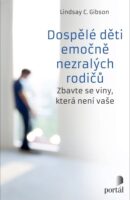Katja Neuhoff
Medailon autorů:
Prof. Dr. Katja Neuhoff is a social pedagogue and social ethicist. Since 2018, she is professor for social philosophy and social ethics at the Department of Social Sciences and Cultural Studies at the University of Applied Sciences Düsseldorf. She teaches on the topics of human rights and ethics in the bachelor and master programs of the Department. Her research is on human rights, professional ethics, social justice, diversity and antidiscrimination, inclusion, and (human rights) education.
Anotace:
OBJECTIVES: Social Work as a Human Rights Profession aims at providing a basis and rationale for ethical dilemmas in professional Social Work. The paper aims at demonstrating how to translate theory into practice by exploring the challenges it poses in situations of deportation referring to examples from the German context of discussion. THEORETICAL BASE: Human rights theory, moral-philosophical reasoning as well as the professional theory on Social Work as a Human Rights Profession define the theoretical base of the paper. METHOD: Students as prospective Social Work professionals have to learn how to ‘walk the talk’ on Social Work as a Human Rights Profession. Hereby, case studies as dense descriptions of individual cases can provide an adequate method of inductive exploration. OUTCOMES: Research has shown that human rights and moral arguments are applicable to cases of impending deportations thereby putting forward good reasons for professionals to take clear position, be present in situations of deportation, and promote further discourse on asylum politics. SOCIAL WORK IMPLICATIONS: Social Work education has to elaborate further, how to work with human rights based approach. Case
tudies provide an adequate method to develop a more distinct and
decisive perspective within the framework of Social Work as a Human Rights Profession.
Klíčová slova:
social work, human rights profession, moral duties, refugees, code of ethics, human rights approach, case-study, European migration politics, German
Issue:
s. 48–66






